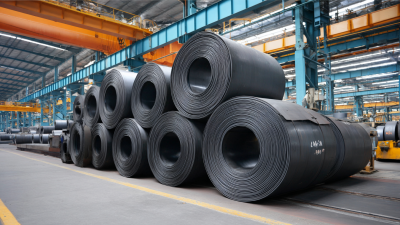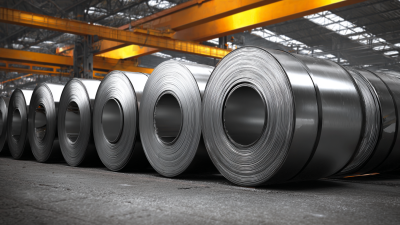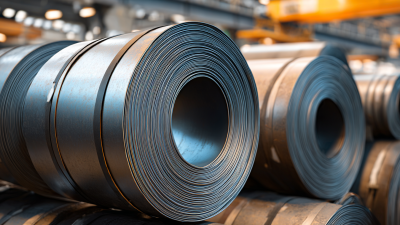In the construction and manufacturing industries, selecting the appropriate materials is crucial for ensuring project success and longevity. One material that stands out for its versatility and strength is the Mild Carbon Steel Coil. According to the World Steel Association, the global demand for mild steel products is anticipated to increase by 1.5% annually, driven primarily by sectors such as automotive, construction, and manufacturing. Mild Carbon Steel Coil offers an ideal balance between cost-effectiveness and performance, making it a preferred choice for various applications. As industry standards evolve and the needs of projects become more specific, understanding how to choose the right Mild Carbon Steel Coil not only enhances the quality and durability of the final product but also optimizes resource allocation and minimizes waste. This guide will explore essential factors to consider when selecting the appropriate Mild Carbon Steel Coil tailored to your project's specifications, ensuring that you make informed and effective decisions.
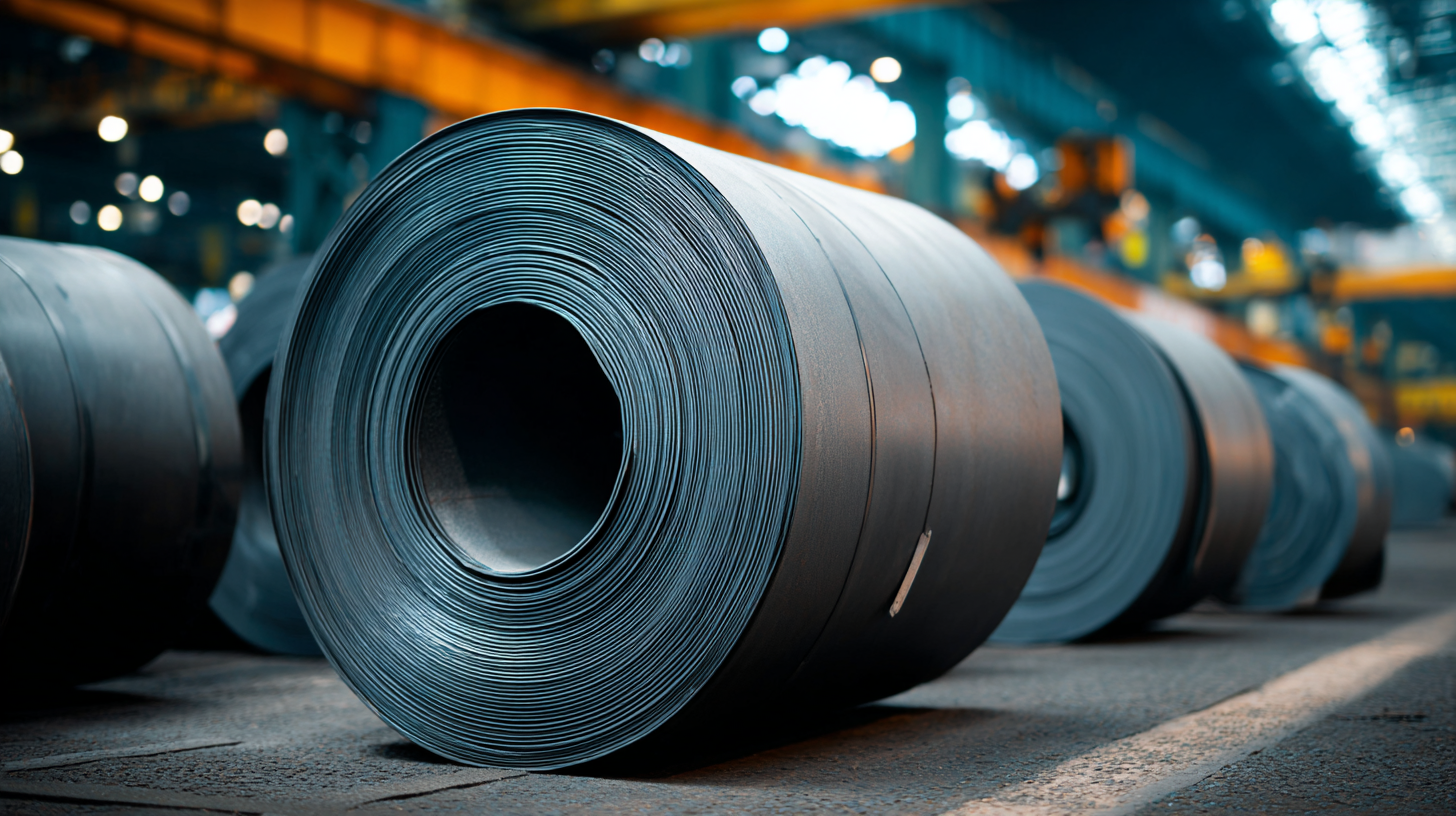
When selecting the right mild carbon steel coil for your project, it's essential to understand the different grades available. Mild carbon steel is classified mainly into three grades: Low Carbon Steel (such as ASTM A1011), Medium Carbon Steel (like ASTM A572), and High Carbon Steel (including ASTM A36). Each grade possesses unique properties, offering varying levels of strength, ductility, and hardness. Low carbon steels, for instance, are easier to weld and form, making them ideal for simple manufacturing processes. In contrast, high carbon steels provide greater strength but may be more challenging to work with.
Tips: When choosing a mild carbon steel coil, consider the following factors: the specific application, the mechanical properties required, and whether the material will undergo further processing like welding or galvanizing. Always consult with suppliers or industry experts to ensure you're selecting the proper grade for your needs. Additionally, check for compliance with industry standards to guarantee quality and consistency.
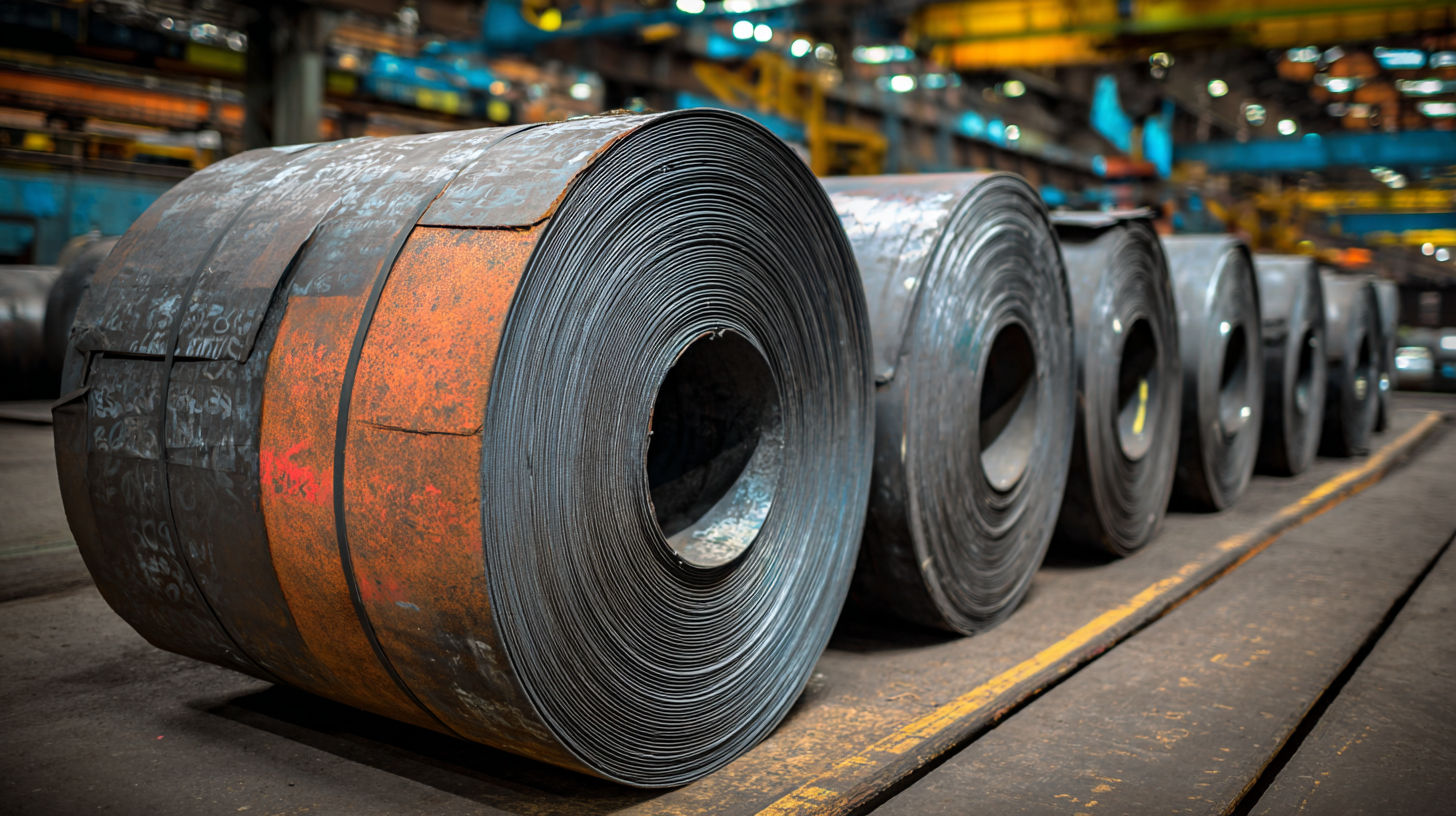
It's also important to assess the environmental factors that may impact your project. For example, if your application will be exposed to moisture or corrosive elements, opting for a galvanized mild carbon steel coil may enhance longevity. Aligning your project needs with the right material grade will ensure optimal performance and durability.
When selecting mild carbon steel coils for your project, assessing the required thickness and width is crucial. The thickness of the coil directly impacts the material's strength and durability. For applications that require high structural integrity, such as automotive or construction projects, opting for thicker gauges is advisable. A standard thickness range for mild carbon steel coils extends from 0.5 mm to 3 mm. However, specific project requirements might necessitate either thinner or thicker options, taking into account factors like load-bearing capacity and resistance to deformation.
Width is equally important in the selection process. The width of the coil determines how much surface area is available for your specific applications. Ensuring that the width aligns with your project specifications can lead to efficiency and reduced waste during fabrication. Common widths for mild carbon steel coils vary, but many manufacturers offer coils in widths ranging from 600 mm to 2,000 mm. By evaluating both the thickness and width in relation to project demands, one can ensure that the chosen mild carbon steel coil meets all necessary criteria for performance, cost-effectiveness, and material utilization.
Evaluating the mechanical properties of mild carbon steel is essential for ensuring the durability and performance of your projects. According to the American Society for Testing and Materials (ASTM), mild carbon steel typically features a yield strength of 250-400 MPa and a tensile strength of 400-700 MPa. These properties indicate that mild carbon steel can withstand substantial loads, making it suitable for various construction and manufacturing applications. Additionally, mild carbon steel exhibits ductility and malleability, with elongation values up to 25% in standard tensile tests, which allows for easy shaping and forming without risking fracturing.
Furthermore, the alloying elements in mild carbon steel play a crucial role in enhancing its mechanical properties. For instance, the presence of manganese can improve the hardness and tensile strength while maintaining ductility. Research from the Steel Manufacturers Association indicates that using mild carbon steel with a controlled carbon content of around 0.05% to 0.25% offers the optimal balance between strength and workability. Understanding these properties will enable you to choose the right mild carbon steel coil that meets your project's specific requirements, ensuring both performance and longevity.
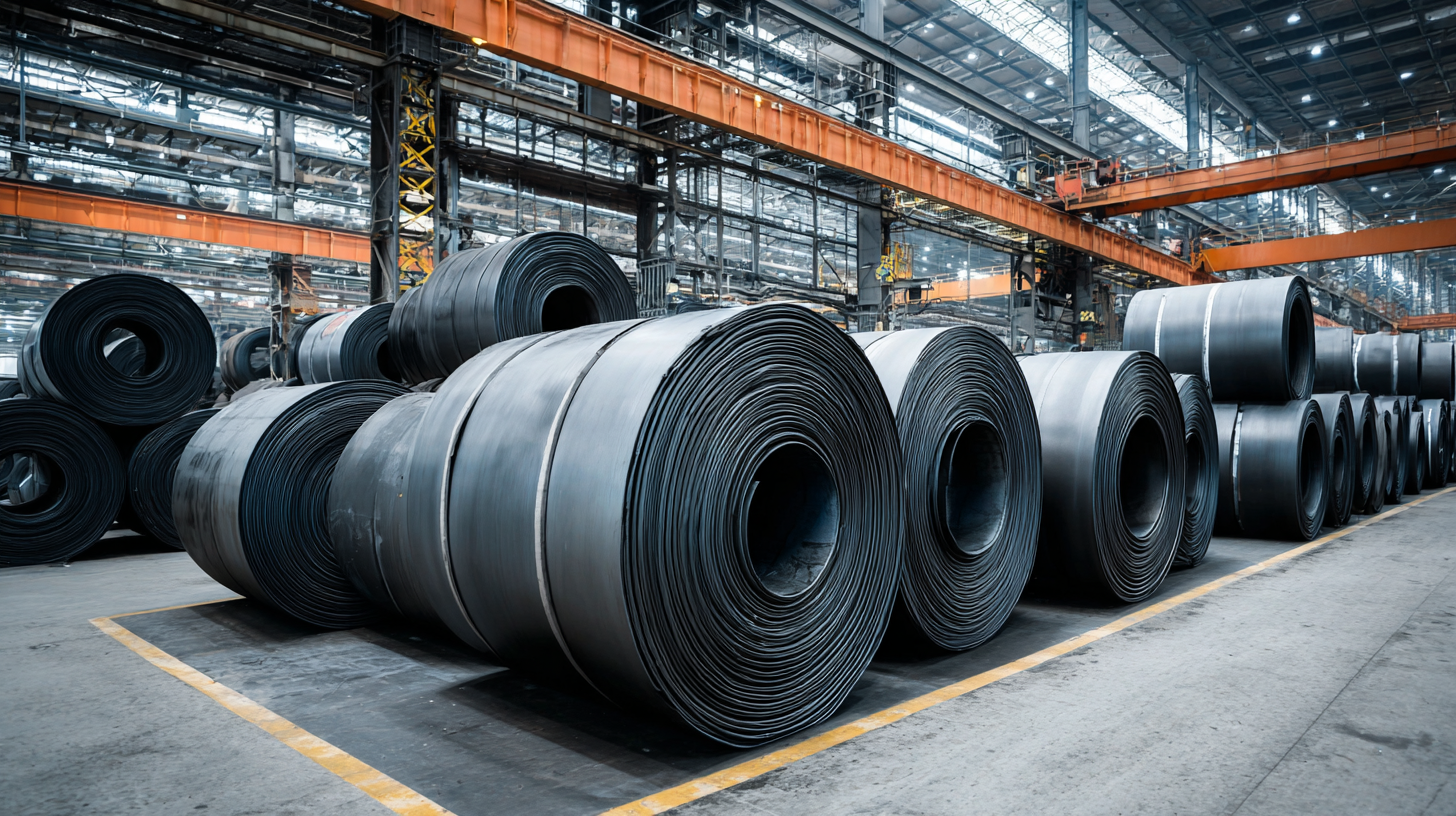
When selecting a mild carbon steel coil for your project, understanding the various coating options available is essential for enhancing corrosion resistance. According to a report from the Global Steel Coating Market, protective coatings can increase the lifespan of steel components by up to 50% compared to uncoated steel. Common coatings include galvanization, where a layer of zinc is applied to the steel, and organic coatings, which provide varying degrees of durability and aesthetic appeal.
When considering these options, be mindful of the specific environmental conditions the steel will face. For instance, hot-dip galvanization is ideal for outdoor applications where exposure to moisture is frequent, as it provides robust protection. In contrast, powder coatings may be more suited for indoor environments, offering a variety of colors and finishes while still ensuring resistance to rust.
Tips: Always check the coating thickness specified by manufacturers. A thickness of at least 85 microns is recommended for galvanizing to achieve maximum protection. Additionally, consider the intended use of the steel; if mechanical wear is a concern, choose a coating that offers abrasion resistance. Regular maintenance and inspections can further prolong the life of your coated steel products.
When selecting a mild carbon steel coil for your project, the cost-effectiveness and reliability of your supplier are critical factors to consider. According to a 2022 report by IBISWorld, the average price for mild carbon steel has fluctuated between $600 and $800 per ton, influenced by global supply chain disruptions and demand in construction and manufacturing. Choosing a reliable supplier can help mitigate these cost fluctuations, offering competitive pricing and timely deliveries. As the industry recognizes, a dependable supplier not only ensures quality materials but also stabilizes costs over the project lifespan.
Furthermore, assessing supplier reliability involves understanding their production capabilities and market reputation. A survey conducted by the Steel Manufacturers Association revealed that 70% of industry professionals rank supplier reliability as a top decision factor, with 80% reporting that they prefer suppliers who provide clear information about material properties and certifications. By ensuring that your chosen supplier adheres to industry standards, such as ASTM A1008 for cold-rolled steel, you can further enhance the cost-effectiveness of your project while securing high-quality materials that meet your specific demands.
| Specification | Thickness (mm) | Width (mm) | Length (m) | Price ($/ton) | Supplier Rating (1-5) |
|---|---|---|---|---|---|
| Mild Steel Coil A | 1.5 | 1250 | 6 | 720 | 4.5 |
| Mild Steel Coil B | 2.0 | 1500 | 12 | 680 | 4.8 |
| Mild Steel Coil C | 2.5 | 1000 | 5 | 750 | 4.2 |
| Mild Steel Coil D | 1.2 | 1250 | 8 | 700 | 4.7 |
| Mild Steel Coil E | 3.0 | 2000 | 10 | 720 | 4.9 |


